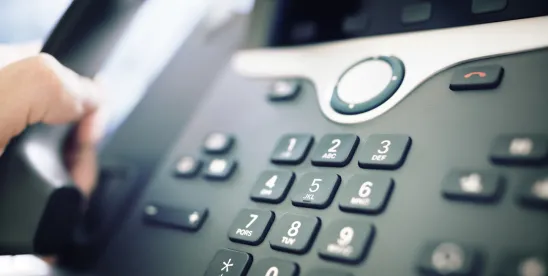Here’s the latest from the ever-colorful TCPAWorld.
A disbarred lawyer received calls on his cell phone. He claims it is his personal cell phone. But the number appeared on a docket in Florida as belonging to a law firm.
The former lawyer sued a caller under the TCPA for DNC violations. The caller (now defendant) sought to dismiss the case arguing that the number was a business line since it was attributable to a law firm that one time down in Florida. The former lawyer opposed arguing that he was disbarred so the number must have been a residential number. When the Defendant persisted in arguing that the number was, nonetheless, a business line the former lawyer sought Rule 11 sanctions.
The matter was assigned to a magistrate judge who quickly—as in without waiting for an opposition—denied the motion for sanctions. The Court found that that the mere fact that the number appeared on the Florida docket at least raised the possibility that the number was, in fact, being willfully held out as a law firm number by the Plaintiff—even though he was disbarred at the time of the calls. The Court’s analysis:
the fact that plaintiff was disbarred four years before the telephone number appeared on the federal docket as a law firm number is not dispositive of whether the number was in fact a law firm number or whether plaintiff had consented to its use as a law firm number. Either scenario could be true notwithstanding plaintiff’s disbarment. Additionally, the presence of the telephone number on the federal court docket in Florida provides some evidentiary support for Discount Power’s assertions that the number was a law firm number and that plaintiff consented to its use as a law firm number. It was not unreasonable for Discount Power to take the position that it relied on the federal court docket as a representation that either the number was a law firm number or Mr. Worsham had consented to the use of his telephone number as a law firm number. Mr. Worsham has not shown that defendant, upon learning of his disbarment and after conducting a reasonable inquiry, would have been compelled to retract its position in its motion to dismiss. Therefore, I find that defense counsel’s zealous representation of its client could reasonably include the argument that the number at issue was the business number for a law firm, run either by a disbarred attorney or an attorney that took over Mr. Worsham’s practice. I also find it would be reasonable for the defendant to include the argument that Mr. Worsham consented to the number’s use as a law firm number even though he had been disbarred. Making these arguments is not “egregious misconduct” warranting sanctions, as “a reasonable attorney in like circumstances could . . . have believed his actions to be legally justified.”
The ol’ “reasonable attorney” standard, at it again.
So I guess the moral of the story is that if you get disbarred don’t leave your number up on old dockets or you might get unwanted calls. Or maybe, don’t sue someone and then use the fact that you were disbarred as a defense to their defense? Yeah, this one defies categorization. Just an oddball.
The case is Worsham v. Disc. Power, Case No.: RDB-20-08, 2020 U.S. Dist. LEXIS 181560 (D. Md. October 1, 2020)




 />i
/>i

